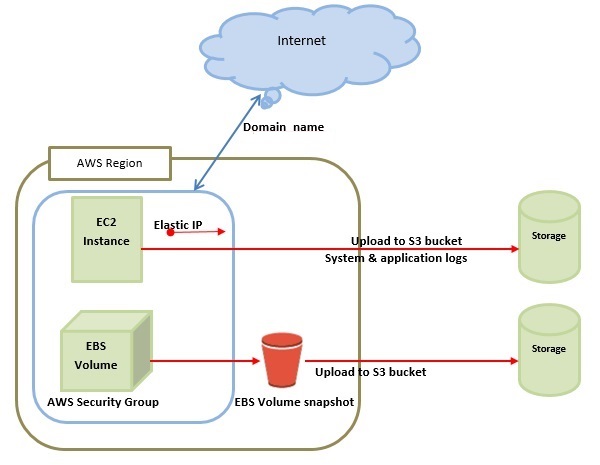Following Key Topics to Cover in AWS-
1) Introduction to AWS
- What is AWS?
- Overview of AWS Services
- AWS Global Infrastructure
- Getting Started with AWS Free Tier
2) Compute Services
- Amazon EC2 (Elastic Compute Cloud)
- Amazon ECS (Elastic Container Service)
- Amazon Lambda (Serverless Computing)
- AWS Elastic Beanstalk
3) Storage Services
- Amazon S3 (Simple Storage Service)
- Amazon EBS (Elastic Block Store)
- Amazon Glacier (Long-Term Storage)
- Amazon EFS (Elastic File System)
4) Database Services
- Amazon RDS (Relational Database Service)
- Amazon DynamoDB (NoSQL Database)
- Amazon Redshift (Data Warehouse)
- Amazon Aurora (High-Performance Database)
5) Networking Services
- Amazon VPC (Virtual Private Cloud)
- Amazon Route 53 (DNS Service)
- Elastic Load Balancing
- Amazon API Gateway
6) Security and Identity
- AWS IAM (Identity and Access Management)
- AWS Key Management Service (KMS)
- AWS Certificate Manager
- Amazon Cognito (User Identity Management)
7) DevOps and Management Tools
- AWS CloudFormation
- AWS CodeDeploy
- AWS CodePipeline
- AWS Systems Manager
8) Monitoring and Analytics
- Amazon CloudWatch
- AWS CloudTrail
- Amazon Elasticsearch Service
- AWS X-Ray
9) Machine Learning and AI Services
- Amazon SageMaker
-
Amazon Comprehend (Natural Language Processing)
- Amazon Rekognition (Image and Video Analysis)
- Amazon Polly (Text-to-Speech)
10) Serverless Application Development
-
Building Serverless Applications with AWS Lambda
- API Gateway Integration
- Event-Driven Architectures
- AWS SAM (Serverless Application Model)
11) AWS Deployment and Management
- CI/CD Pipelines with AWS CodePipeline
- Automated Deployment with AWS CodeDeploy
-
Infrastructure as Code with AWS CloudFormation
- Managing AWS Resources with AWS CLI
12) AWS Best Practices and Cost Optimization
- Security Best Practices
- Cost Optimization Strategies
- Performance Optimization Techniques
- Operational Excellence
Mastering Amazon Web Services (AWS) is essential for
designing, deploying, and managing scalable and
reliable cloud solutions across various industries.
This curriculum covers the fundamental topics needed
to become proficient in AWS services and
architectures. By understanding these concepts, you
can develop cloud-native applications, optimize
infrastructure, and leverage AWS services effectively.
Best of luck with your learning journey!



